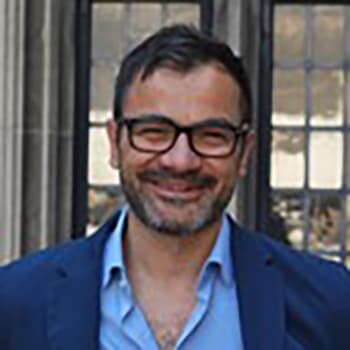Leonardo Salmena, PhD

Excellence in Linking Undergraduate Teaching to Research in Life Sciences
Undergraduate Teaching Awards in Life Sciences
Biography
Leonardo (Lenny) Salmena is a cancer biologist investigating the role of phosphoinositide signalling perturbations, deregulated microRNAs and other non-coding RNAs in the etiology and treatment of cancers, with a focus on acute myeloid leukemia. Currently, Lenny is an Associate Professor at the University of Toronto, Department of Pharmacology and Toxicology holds a Tier 2 Canada Research Chair in Signal Transduction and Gene Regulation in Cancer.
Lenny completed his Hon. BSc and M.Sc. in the Department of Pharmacology and Toxicology at the University of Toronto before completing his Ph.D. in the Department of Medical Biophysics at the Princess Margaret Cancer Centre. Lenny’s post-doctoral training in Cancer Biology and Genetics was split between Memorial Sloan-Kettering Cancer Center and the Beth Israel Deaconess Cancer Center at Harvard Medical School from 2007 to 2012.
“It’s a real honour to receive the Excellence in Linking Undergraduate Teaching to Research in Life Sciences Award as it represents one of my career ambitions to inspire students to pursue a career in scientific research. Undergraduate training in my lab is a priority since they are really the hold the key to the future discoveries as graduate students and postdocs of tomorrow in my lab, and beyond.”
Since his return to Toronto in 2014, the Salmena Lab has been home to over 30 undergraduate trainees participating I number of exciting projects in cancer biology.
From the Nomination
Dr. Salmena creates such an enriching experience largely due to his ability to bridge course concepts with the research in his lab.
His love for his subject is so contagious and the way he teaches it garners such a sense of understanding and a desire to delve deeper into the area of study, that I knew I had to reach out to him to ask if he had a research position available in his laboratory as soon as I could
As a great leader, he created a collaborative environment in the lab to make sure the grad and undergrad students worked as a team to teach each other and learn from one another.”
About the Award
This award recognizes sustained excellence, mentorship and innovative methods that link undergraduate teaching to experiential research opportunities such as research project courses, summer student research projects or equivalent programs.